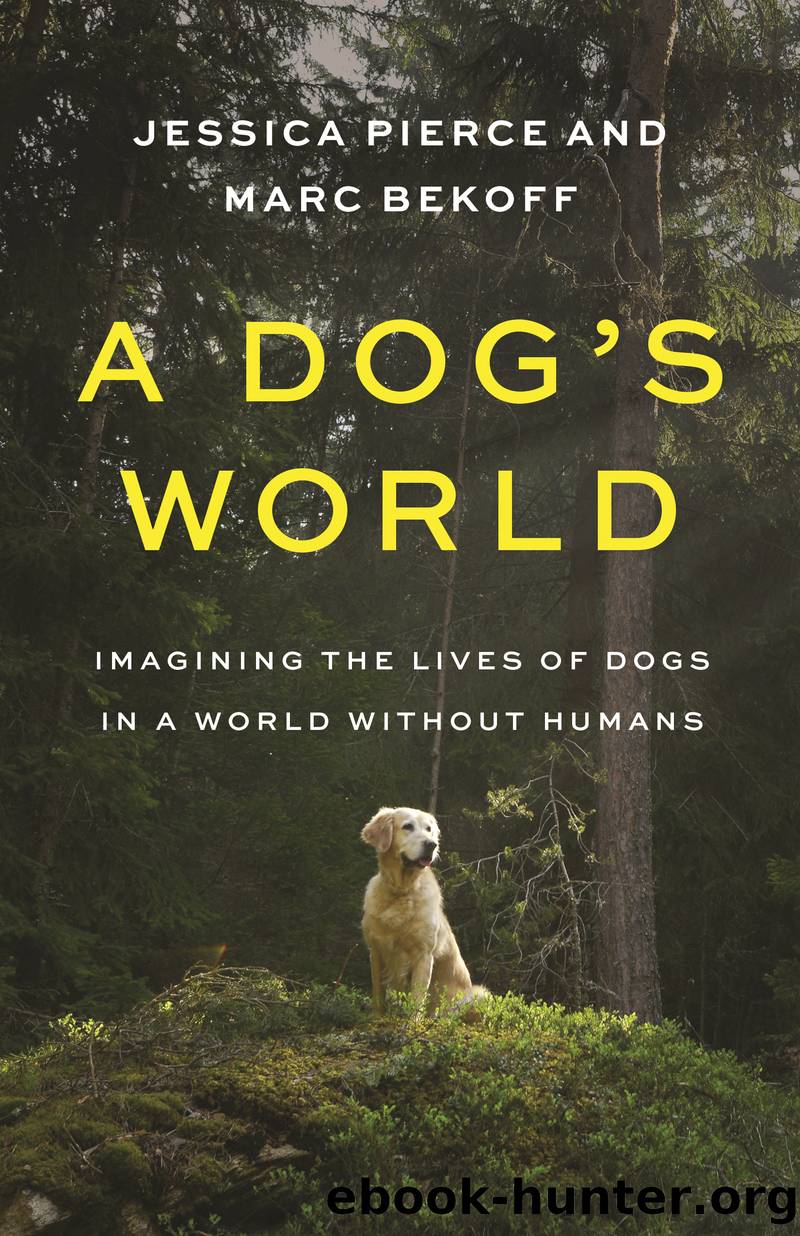A Dog's World by Jessica Pierce;Marc Bekoff;

Author:Jessica Pierce;Marc Bekoff;
Language: eng
Format: epub
Publisher: Princeton University Press
Published: 2021-07-30T00:00:00+00:00
EMOTIONAL INTELLIGENCE
Emotions are âaffectiveâ (mood or feeling) responses to stimuli that result in physiological and behavioral reactions. Emotions have evolved because they are adaptive; they regulate and guide behavior. We can go a long way toward understanding the emotional experiences of dogs by looking inward, since dogs experience many of the same basic emotionsâor affective experiencesâas humans: happiness, fear, anger, disgust, joy, excitement, affection, jealousy, and distress. All dogs experience these emotions. However, as with morphological and cognitive traits, emotional states vary among individuals and there are differences in what individuals feel under what circumstances, the depth of these feelings, and what they do with these feelings. Animal emotions have evolved over millions of years, and it is unlikely that the basic emotional profile of dogs will change very much, unless we consider very long-range evolutionary time frames. Any changes that might take place will be very gradual.
Emotional intelligence is the capacity to effectively recognize and understand oneâs own emotions and the emotions of others and to use this information to guide oneâs behavior. Like intelligence more generally, there are multiple emotional âmodalitiesâ and different dogs will excel in different areas. For example, some dogs may have exceptionally good self-regulation, which might help control fear responses and anxiety, and allow for self-possession when challenged by an aggressive or unfriendly dog. Other dogs may be good at gauging the intentions and moods of group members, which might help them cooperate successfully with others and avoid agonistic encounters. Still others may be good at diffusing potentially explosive situations in which they might get injured or which might cause a group to lose its cohesiveness.
There has been a great deal of research into human-directed emotions in dogs, such as empathy, the ability to read and respond to human emotional states, and the oxytocin feedback loop that occurs when humans and dogs gaze into one anotherâs eyes. Many dogs are emotionally attuned to humans and bonded to them, but the extent to which these emotional skills in dogs are dependent upon or uniquely directed to humans is often overstated. Without humans, dog emotions may change, but itâs hard to say how much difference the loss of humans will really make.
Download
This site does not store any files on its server. We only index and link to content provided by other sites. Please contact the content providers to delete copyright contents if any and email us, we'll remove relevant links or contents immediately.
| Amphibians | Animal Behavior & Communication |
| Animal Psychology | Ichthyology |
| Invertebrates | Mammals |
| Ornithology | Primatology |
| Reptiles |
Sapiens: A Brief History of Humankind by Yuval Noah Harari(13079)
The Tidewater Tales by John Barth(12039)
Do No Harm Stories of Life, Death and Brain Surgery by Henry Marsh(6343)
Mastermind: How to Think Like Sherlock Holmes by Maria Konnikova(6253)
The Thirst by Nesbo Jo(5795)
Why We Sleep: Unlocking the Power of Sleep and Dreams by Matthew Walker(5659)
Sapiens by Yuval Noah Harari(4553)
Life 3.0: Being Human in the Age of Artificial Intelligence by Tegmark Max(4521)
The Longevity Diet by Valter Longo(4454)
The Rules Do Not Apply by Ariel Levy(3915)
The Immortal Life of Henrietta Lacks by Rebecca Skloot(3833)
The Body: A Guide for Occupants by Bill Bryson(3818)
Why We Sleep by Matthew Walker(3782)
Animal Frequency by Melissa Alvarez(3762)
Yoga Anatomy by Kaminoff Leslie(3713)
Barron's AP Biology by Goldberg M.S. Deborah T(3636)
The Hacking of the American Mind by Robert H. Lustig(3588)
All Creatures Great and Small by James Herriot(3527)
Yoga Anatomy by Leslie Kaminoff & Amy Matthews(3407)
